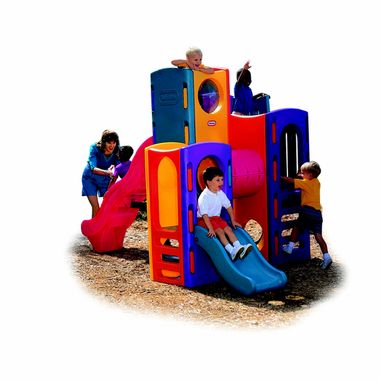DCYA is not in a position to operate a National Lottery Scheme in 2015
National Lottery Scheme 2014
A list of organisations funded during 2014
Youth Capital Funding Scheme 2014/2015
The Government has allocated funding to the Department of Children and Youth Affairs for a Capital Funding Scheme. Under the scheme staff led youth projects and some youth organisations funded by the Department may apply for grants to undertake small to medium capital projects in 2014 and 2015.
The is open to applications from Department of Children and Youth Affairs funded projects under the Special Projects for Youth Scheme (SPY), Youth Information Centres (YICs), Young People’s Facilities and Services Fund (YPFSF) and Local Drugs Task Force (LDTF) (21 mainstreamed projects). As a once-off exceptional measure the scheme is also open to a number of national youth organisations.
Further details can be found on the Youth Capital Funding Scheme 2014/2015 page of the Departments website.
DCYA Research Scholarship Programme
The Department of Children and Youth Affairs (DCYA) Growing Up in Ireland Postgraduate Scholarship in partnership with the Irish Research Council
The Research and Evaluation Unit of the Department of Children and Youth Affairs, in partnership with the Irish Research Council, invites applications for the DCYA Growing Up in Ireland Postgraduate Scholarship. This scholarship is administered by the Irish Research Council as part of the Irish Research Council Government of Ireland Postgraduate Scholarship Scheme under their strategic partner themes.
Childcare Capital Programme 2013
The Department of Children & Youth Affairs (DCYA) wishes to maintain progress in improving and reinforcing quality of early childhood care and education services provided to children. A range of capital investment programmes have supported this progress to date including the Equal Opportunities Childcare Programme; the National Childcare Investment Programme and the Childcare Capital Programme 2012. DCYA has secured €2,750,000 for a Childcare Capital Programme 2013.
Objectives of Childcare Capital Programme 2013:
- To improve the quality of service to children
- To provide for critical works that ensure that childcare facilities are ‘fit for purpose’
The 2013 funding scheme covers four strands:
- small grants to purchase equipment or carry out small maintenance work
- grants to improve accessibility of services for children with disabilities
- grants to provide natural outdoor spaces that promote active outdoor play and
- grants towards critical works to ensure that buildings are fit for purpose under the childcare regulations (open to community/not for profit services only).
The scheme will be administered by Pobal on behalf of the DCYA and the scheme will be administered online. Full details of the Programme and instructions are available on the Pobal website.
The applciation process is now closed (as of Tuesday 30th April 2013).
Youth Café Capital Funding Programme 2013
Funding of up to €1 million is available from the Department of Children and Youth Affairs for fit-out, refurbishment works or building enhancement projects for the startup of new Youth Cafés. One of the core functions of a youth café is that it offers support to young people, ranging from practical support to advice through their participation in activities that are of interest to them and that are varied and on offer at times that suit their normal activities. In awarding funding, the Department will endeavour to ensure that there is a geographical spread of youth cafés from the funding commensurate to existing provision in the area.
“Youth Cafés in Ireland: A Best Practice Guide” which was launched in April 2010 by the Office for the Minister for Children and Youth Affairs. The document contextualises the youth café model in Ireland and is an important towards informing your application. Applicants should also read the toolkit devised on behalf of the DCYA in relation to setting up a youth café.
Pobal is assisting the Department of Children & Youth Affairs in managing the Youth Café Programme 2013.
The Application Guidelines aims to explain the purpose and process of the Youth Café Programme 2013 and to assist applicants in making a valid application under the programme.
The application process is now closed (as of 12th April 2013).
More information on Pobal website
Community Childcare Subvention (CCS) Programme
The programme supports disadvantaged parents and provides support for parents in low paid employment and training or education by enabling qualifying parents to avail of reduced childcare costs at participating services
Who can apply?
Programme is restricted to Community/Not-for-profit childcare Services
Application process
Service are eligible to apply through the City/County Childcare Committees initially and approvals are granted by Pobal and Department of Children and Youth Affairs however no new applications are being accepted at this time.
Further Details
Further details can be found here.
Childcare Education and Training (CETS) programme
The programme supports parents on certain eligible FÁS and VEC courses by providing subsidised childcare places.
Who can apply?
Both Private and Community Based/not for profit childcare services
Application process
Service are eligible to apply through the City/County Childcare Committees initially and approvals are granted by the Department of Children and Youth Affairs.
The deadline for applications for entry or re-entry to the CETS Programme for the academic year will normally be 30th March of that year.
Further Details
Further details can be found here.
Early Childhood Care and Education (ECCE) programme
The ECCE programme is designed to give children access to a free pre-school year of appropriate programme-based activities in the year before they start primary school.
Who can apply?
The programme is available to both private and community based / not for profit pre-school services.
Application process?
Services are eligible to apply through the City/County Childcare Committees around February / March of each year in advance of the September pre-school year.
Application process
The deadline for applications for entry or re-entry to the ECCE Programme for the academic year will normally be 30th March, prior to the commencement of the pre-school year. No new service applications are accepted at this time.

